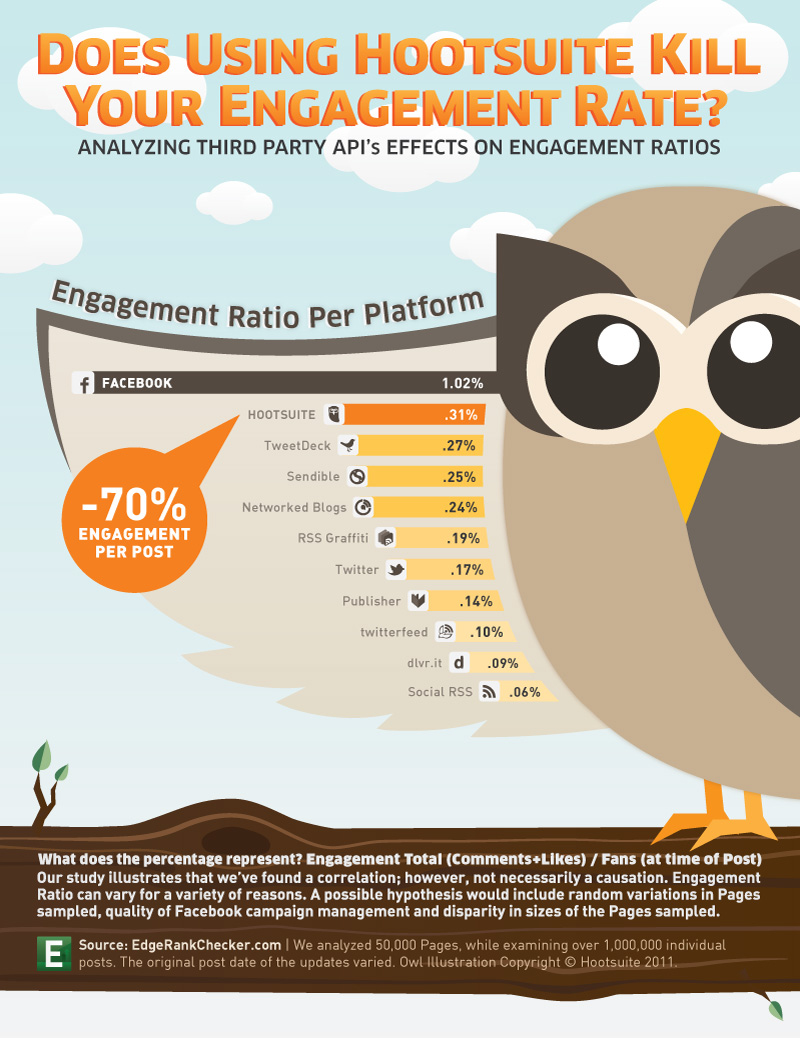There are so many myths about what fans like, but we're strarting to understand that what one person sees on Facebook or Twitter reallys isn't predictable- their graph will determine what they see, and Facebook now gives brands more headachess than ever for getting into the newsfeed.
A possible answer to this is the rising numebr of studies which use the facebook API, and largwe scale data collection, to break news about what may be happening to page content (with the implicit point that most of thye a brand's fans will engage via tyhe newsfeed rather than coming to the page).
Solid analytcis, have been published on this topic, such as Facebook Engagement analysis from Visibli or L2's Facebook IQ. A new study by EdgeRank Checker -suggests that using Third-party applicationsto post to facebook results in the creation of content that gets lowerr engangent than native Facebooks posts.
There are a variety of reasons for pages to want a managed publishing solution, including regulatory, workflow, manpower, and moderation, in additon to those you'll also hear in the sales pitches from Buddy Media, Vitrue, Involver, and the others named below.
So what is the enterprise digital social strategist to do? Never, ever, take the top line conclusion from the vendor and appluy it to your bsuiness. Ask for data about your client specifically. Dig into which pages were used.
For example, there are so many tiny fan pages doing a terrible job with mediocre nontent, I bet the amouint of objects created by those pages dwarfs the major brand pages. We've all seen those pages. I'll be digging in, let's see what else EdgeRank can tell us.



